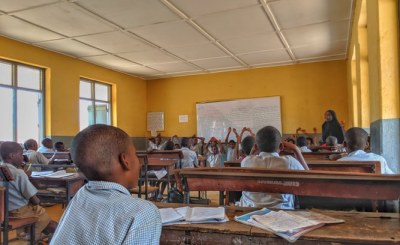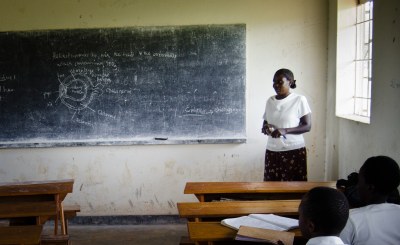-
Uganda: New Pregnancy Policy Bears Twin Problems
Independent (Kampala), 24 January 2022
Two weeks before Uganda ended the longest school closure in the world owing to outbreak of COVID-19 pandemic, the Ministry of Education and Sports instructed all primary and… Read more »
-
Uganda: Classrooms Under Pressure As Refugee Schools Reopen
Nile Post, 12 January 2022
After two years of closures, longer than anywhere else in the world, Ugandan schools reopened this week and refugee children were among those who returned for studies across the… Read more »
-
Uganda: We All Have a Role to Ensure Children Go Back to School
Observer, 11 January 2022
Allow me start by congratulating everyone for crossing over into 2022. Read more »
-
Uganda: Over 3,000 Girls in Amuru Uncertain of Returning to School
Independent (Kampala), 12 December 2021
Over 3,200 girls in Amuru are not sure they will return to school due to teenage pregnancies and early marriages in the past year. Read more »
Despite Change Young Mothers Still Face Huge Challenges in Uganda
Two weeks before Uganda ended the longest school closure in the world because of the outbreak of Covid-19 pandemic, the Ministry of Education and Sports instructed all primary and secondary schools to allow pregnant students to return to school. Uganda has for years recorded some of the highest teenage pregnancy rates in the world, according to the United Nations. Each year, thousands of school girls become pregnant while in school. Adolescent girls who have early and unintended pregnancies face many social and financial barriers to continuing with formal education.
With funding from donors, such as the United Nations Children's Fund (UNICEF) and the United Nations Population Fund (UNFPA), Uganda's Ministry of Education and Sports issued a 40-page "revised guidelines for prevention and management of pregnancy in school settings". These guidelines state that "there is need for change in attitudes towards pregnant girls, their contribution in school, and subsequent re-entry to school. These attitudes are gender-biased, violate the girl child's right to education."
But not everyone is happy about the government's decision to allow pregnant and breastfeeding students back to school, Two bishops have come out to oppose the government policy shift. "We advise that let them first give birth, breastfeed and later they can come back to school. They set a bad example to the rest of the girls in school," Bishop of Ruwenzori Diocese Reuben Kisembo said. Commenting on the bishop's remarks, the State Minister for Higher Education, John Chrysostom Muyingo, said it is a government directive that all children should go back to school whether pregnant or breastfeeding.
InFocus
-
The age of consent for sex in Uganda is 18 years. A report by NGO, Communication for Development Foundation Uganda, indicates that over 23,000 girls have been visiting antenatal ... Read more »





